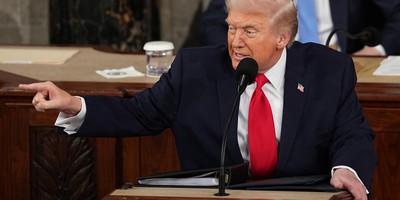Last weekend, just 24 hours after a tragic murder-suicide committed by one of its own players, the Kansas City Chiefs played their Sunday football on schedule. Back in 1963, just 48 hours after the nation-shaking assassination of President Kennedy, the NFL played its Sunday football games as usual, a decision later deeply regretted by then-commissioner Pete Rozelle. Will last Sunday’s decision be regretted as well?
President Kennedy was pronounced dead on Friday afternoon, November 22nd, 1963. Two days later, less than one hour before the early games were about to start on Sunday, Lee Harvey Oswald, the alleged assassin, was shot dead by Jack Ruby. Yet as Kennedy’s body lay in state in the Capitol and as the nation reeled with shock, the NFL played on.
Looking back almost 40 years later, the decision to play seems absolutely bizarre and almost perverse. What was Pete Rozelle thinking?
It is true that Rozelle consulted Kennedy’s press secretary, Pierre Salinger, who, in 1993, still felt it was the right to play the games. “Absolutely, it was the right decision,” he said. “I've never questioned it. This country needed some normalcy, and football, which is a very important game in our society, helped provide it.”
And it is true that, Robert Kennedy visited the Philadelphia Eagles in a pre-season game in 1964, shaking hands with the players and telling them the Kennedy family was glad they played the games.
But Rozelle ultimately thought otherwise, calling his decision the biggest mistake of his career, and many of the players, who were not happy they were required to play, agreed with that assessment. (Interestingly, the American Football League, at that point a rival league just three years old, postponed its games.)
Of course, on a national level, the events of last weekend, as tragic as they are, cannot be compared to the assassination of the president. Yet there was something bizarre about the football game going on without a hitch in the very stadium where, 24 hours earlier, Jovan Belcher had taken his own life after murdering his girlfriend, leaving their three-month-old daughter an orphan.
Recommended
The Chiefs’ organization certainly tried to handle the situation with sensitivity. The CEO met with the players and coaches and ultimately left the decision to them. And rather than beginning the game with a moment of silence in honor of Belcher, they began with a moment of silence in memory of victims of domestic violence, thereby focusing on the murder victim more than the murderer.
During the game, the commentators made occasional reference to this being a difficult day for the team and the city, while the post-game press conference focused on the decision to play more than the game itself.
In obvious pain, coach Romeo Crenell explained that this is what they do as professionals – play football on Sunday – and so they were not going to neglect their responsibilities.
And during Sunday night’s football game, the entire halftime show focused on the events in Kansas City, culminating with Bob Costas’ unfortunate commentary which put the emphasis on the need for gun control.
I also understand the need for life to go on as usual after a tragedy, bringing some level of healing and stability to a city rocked by the shocking news. And the Chiefs actually won their game after being mired in a long losing streak.
On the other hand, it was only 24 hours earlier that Belcher, one of the starting players on the Chiefs, took his own life in the presence of Coach Crenell and general manager Scott Pioli. Can you imagine coaching a football game one day after watching someone on your team kill himself after murdering his girlfriend?
And tens of thousands of fans made their way into the very stadium where Belcher took his own life the previous day. Is there not something macabre about the whole scene? Is there not something that speaks of our national obsession with sports?
There is also the question about Belcher’s state of mind on the day of the murder-suicide.
It is well known that a number of NFL players have taken their own lives in recent years, most notably Junior Seau, an icon of the city of San Diego, in May of this year. Many attribute these self-destructive acts to the frequent concussions suffered by the players, apparently leading to different types of brain degeneration, such as the early onset of Alzheimer’s.
This is reminiscent of the grisly events of June 24th, 2007, when professional wrestler Chris Benoit murdered his wife and son and then killed himself. Subsequent investigation suggested the possibility of brain damage due to frequent concussions, and this, coupled with steroid abuse, may have contributed to the horrific end of Benoit and his family.
Had Belcher also suffered recent brain damage, which was then exacerbated by his reported heavy drinking? And did his very profession, at times aggressively violent, contribute to his behavior?
In light of these questions, and given the proximity in time and place of the murder and suicide, would it not have been better to postpone the game, even in a symbolic way, say, by starting at 4:00 PM rather than 1:00, or perhaps by adding it as an early game on Monday night?
I’m not questioning the character and motivation of the coaches and players who had to make a very difficult decision last week. I’m just wondering out loud if there’s not something amiss with “the game must go on” mentality.

























Join the conversation as a VIP Member